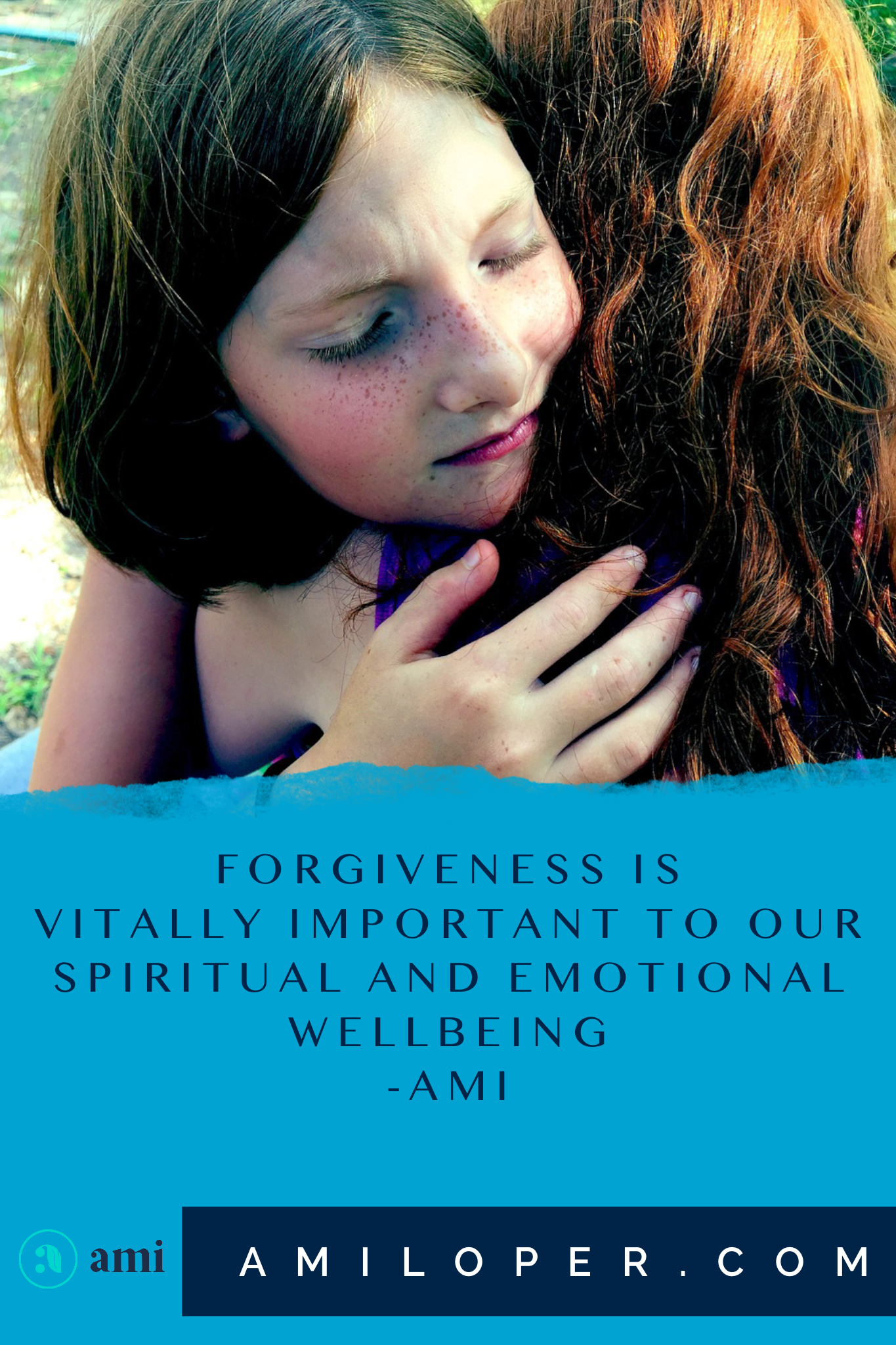Must I Reconcile?
The following is from the monthly column I write for the His Favor Ministries Newsletter! This Q&A column will answer all kinds of theological and life questions and is titled, “Ponderings of the Heart.” If you’d like to see more from His Favor, click HERE.
Below, is another entry! I hope you enjoy it and if you would like to send a question in, send it to either amiloper@gmail.com
Dear Ami, I understand the importance of forgiveness, but is reconciliation the same thing? Must I reconcile with everyone, even unsafe people? Signed, Cautious
Dear Cautious,
You are so right! Forgiveness is vitally important to our spiritual and emotional wellbeing. But forgiveness doesn’t always automatically result in reconciliation.
Of course, reconciliation should always be the goal. We, as Believers, have been given the ministry of reconciliation (to reconcile people to God), but that ministry should also imprint on our hearts and cause us to seek out reconciliation wherever possible.
However, the realism of Romans 12:18 demonstrates that peaceful relationships are not always in our control when it says, “If possible, so far as it depends on you, live peaceably with all.”
Although God offers forgiveness to everyone, reconciliation can only be received by those who repent. In the same way, in our relationships, we must forgive others regardless of whether or not they repent, but reconciliation is only for those who repent.
Once forgiveness has taken place, and depending on the offense, God leaves open to us a variety of options when it comes to reconciliation:
· We may choose to overlook the offense and “cover a multitude of sins” (1 Peter 4:8).
· We may choose to continue to remain in a shallower relationship in which we love and care for that person while maintaining a safe emotional distance based on legitimately not being able to trust that person (John 7:1-10; Acts 15:36-41).
· We may, if the offense is serious enough, completely disassociate from that individual, keeping distant and safe while still not wishing ill or doing harm to that person’s life (Matthew 18:15-18; Romans 16:17; 2 Thessalonians 3:6, 14; 1 Timothy 1:20).
· We may even pursue legal justice (Luke 18:1-8).
People in the Word of God who faced injustice, abuse or offense handled it in various ways. Here are some examples:
· Abraham and Lot separated because of conflict and, even when Abraham rescued him and even when Lot lost everything, he did not come back to live with Abraham. No animosity is implied, but neither is full reconciliation (Genesis 13-14, 18-19).
· Joseph, faced with his abusive brothers again, tested them incredibly harshly to see if there was any legitimate repentance before reconciling with them (Genesis 42-44).
· David, though urged to reconcile with Saul, knew that to do so would put him in danger and he refused the royal demand of Jonathan. He refused to harm Saul, but neither did he put himself in danger (1 Samuel 20).
· Nehemiah didn’t submit to or reconcile with Sanballat and Tobiah, though they tried to make him appear rebellious because of it (Nehemiah 6).
· Jesus didn’t entrust Himself to His brothers’ will or trust their motives and so maintained distance with them at the Feast of Booths (and probably even more than that occasion, given His response about them in Matthew 12:46-50) (John 7).
· Paul mistrusted Mark after being disappointed by him and waited until Mark proved himself thoroughly before trusting him again (Acts 15:36-41, 2 Timothy 4:11).
As followers of Jesus Christ, we should always keep reconciliation as our goal. And although there are times when that goal cannot be realized, love can always be our hallmark. Pray and seek God’s perspective on your particular situation. Seek godly counsel and then rest in Him when you follow His leading in your life.
Keep Pondering,
Ami
To receive the FREE RESOURCE: Printable Scripture Card: “Knowing Your Abba’s Heart for You When You’re Hurting,” click HERE! I pray they help to establish your confidence in God’s loving care for you when your heart is breaking.
And to read more about heartbreak, read the blog post, “What I Need in the Moment of Rejection” click HERE!



